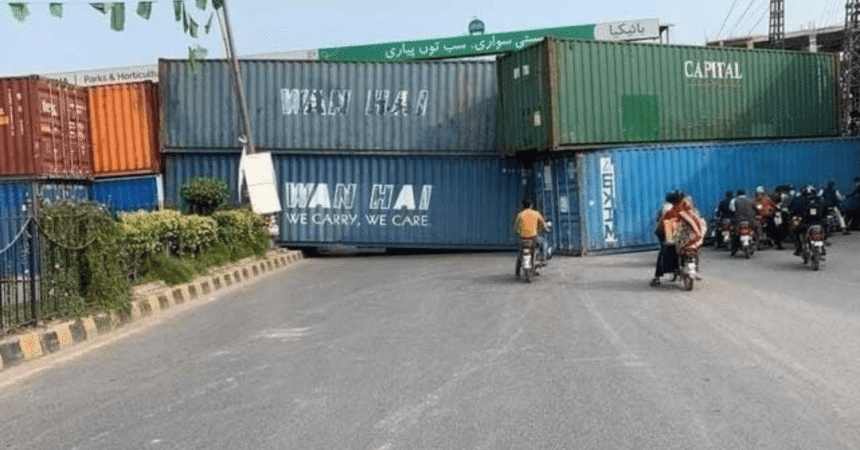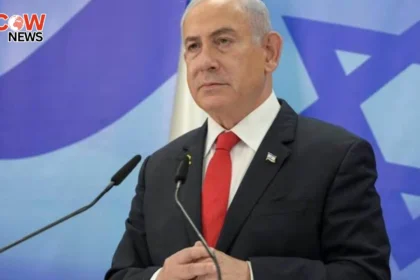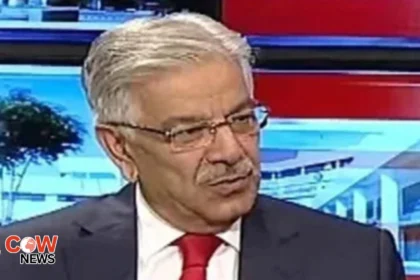In a significant escalation of tensions between the Pakistan Tehreek-e-Insaf (PTI) party and the authorities, Rawalpindi has effectively been sealed off in anticipation of a protest scheduled for Saturday at Liaquat Bagh. The city has witnessed a heavy police presence, barricades erected at key points, and a suspension of mobile services, raising concerns about public safety and the freedom of expression.
Heavy Police Deployment
As the PTI announced its intention to gather at Liaquat Bagh, the district administration reacted swiftly. A heavy contingent of police has been deployed across Rawalpindi, especially at all entry points. The police presence is not just for crowd control; it serves as a deterrent against any potential violence that could arise from the protest.
The local authorities have requested the deployment of four companies of Rangers to further secure the area. This deployment is seen as a precautionary measure, especially following the implementation of Section 144, which bans all forms of public gatherings in the Rawalpindi division.
Traffic Disruptions and Road Closures
The anticipation of large crowds has led to widespread traffic disruptions. Major highways and routes connecting Rawalpindi to Islamabad and beyond have been closed. Containers have been strategically placed to block roads, making it difficult for commuters to navigate the area. Key thoroughfares, including the Islamabad Expressway and routes leading to Murree Road, are significantly affected, causing frustration among citizens who rely on these roads for daily travel.
Motorways M1 and M2 are also closed, creating further chaos as traffic is diverted to alternative routes. The diversion from Faizabad to Rawal Dam has added to the congestion, demonstrating the extent to which the authorities are willing to go to maintain order.
Public Response and Challenges
The public response to the restrictions has been mixed. While some citizens express support for the authorities’ efforts to maintain law and order, others are critical of the measures that curtail their freedom to assemble and express dissent. The suspension of mobile services adds another layer of challenge, as residents are left without the ability to communicate effectively, which is particularly concerning in emergencies.
Many commuters have voiced their frustrations on social media, highlighting the severe difficulties faced due to road closures. The blockade has not only disrupted daily life but has also created a sense of uncertainty and anxiety among the populace.
PTI’s Stance and Strategy
The PTI, led by its leadership including Khyber Pakhtunkhwa Chief Minister Ali Amin Gandapur, remains resolute in its plans to proceed with the protest, even in the face of such stringent measures. PTI Information Secretary Sheikh Waqas Akram has made it clear that the party will gather at Liaquat Bagh, regardless of the lack of official permission. This defiance underscores the ongoing political struggle in Pakistan and the PTI’s determination to mobilize its base.
The party’s leadership has instructed its supporters to converge on Liaquat Bagh by 2 PM, indicating a well-coordinated effort to ensure a significant turnout. The PTI’s ability to rally support amidst heightened security reflects its sustained influence and the underlying discontent among certain segments of the population.
Government’s Justification
The government’s decision to impose Section 144, restricting political gatherings, is framed as a necessary step to maintain public order. Officials argue that the measures are essential to prevent potential clashes between PTI supporters and law enforcement. The fears of armed hooligans entering Rawalpindi, as indicated by the district administration, have fueled the justification for the heavy police presence and roadblocks.
Broader Implications for Democracy
The events unfolding in Rawalpindi have raised critical questions about the state of democracy in Pakistan. The government’s actions, viewed by some as an overreach, may stifle political discourse and dissent, raising alarms among civil rights advocates. The right to peaceful assembly is a cornerstone of democratic governance, and its curtailment could set a troubling precedent.
As the situation develops, the balance between maintaining law and order and protecting civil liberties will remain a contentious issue. Observers are closely monitoring how these events will affect the political landscape in Pakistan, particularly in light of the upcoming elections.
National Attention and Media Coverage
The PTI protest has attracted national media attention, with various news outlets covering the developments in real time. Social media platforms are abuzz with discussions, opinions, and live updates, providing a glimpse into the sentiments of citizens. The presence of journalists on the ground is crucial, as they bring attention to both the protest and the government’s response.
Security Concerns and Preparedness
With the deployment of additional Rangers and police forces, the government aims to demonstrate its preparedness for any potential unrest. However, the effectiveness of these measures remains to be seen. The tension between maintaining security and allowing for political expression is a delicate balance that law enforcement agencies must navigate.
Authorities have also expressed concerns about possible infiltration by individuals with malicious intent, leading to a heightened state of alert. The prospect of violence has prompted the government to take these preemptive steps, reflecting a broader trend of escalating security measures during times of political unrest.
Legal and Constitutional Aspects
The invocation of Section 144 raises important legal questions regarding its application. Critics argue that such measures should not be used to suppress political dissent, as they can infringe upon constitutional rights. Legal experts may scrutinize whether the government’s actions align with constitutional provisions protecting the right to assemble peacefully.
As debates over the legality of these restrictions continue, the PTI is likely to challenge the government’s decisions in court, setting the stage for a legal battle that could further complicate the political landscape.
The Role of Civil Society
Civil society organizations are also closely watching the developments in Rawalpindi. Many advocate for the protection of civil liberties and the right to free expression. They may play a crucial role in mobilizing public support for the PTI’s cause and challenging government actions perceived as oppressive.
The events in Rawalpindi could catalyze a broader movement for democratic reform, with civil society taking an active stance against any perceived encroachments on rights. The interplay between political parties and civil society will be a critical factor in shaping the future of political discourse in Pakistan.
Future Prospects
As the situation in Rawalpindi unfolds, the ultimate outcome remains uncertain. The potential for confrontation between PTI supporters and law enforcement could escalate, leading to further unrest. Alternatively, a peaceful demonstration could serve as a platform for dialogue and negotiation, potentially easing tensions.
Political analysts will be closely monitoring the ramifications of this protest, as it could influence upcoming elections and the overall political climate in Pakistan. The ability of the PTI to mobilize support amidst heavy opposition may signal a resurgence of political activism, or it could lead to a crackdown that stifles dissent.
Final Thoughts
The events in Rawalpindi reflect the complex dynamics of Pakistani politics, where the struggle for power is often accompanied by significant risks. As citizens navigate the challenges posed by road closures and security measures, the broader implications for democracy and civil rights will be at the forefront of national discourse. How this situation will evolve remains to be seen, but it undoubtedly serves as a pivotal moment in Pakistan’s ongoing political saga.
#Rawalpindi #PTIProtest #CivilLiberties #PakistanPolitics #DemocracyInPakistan







